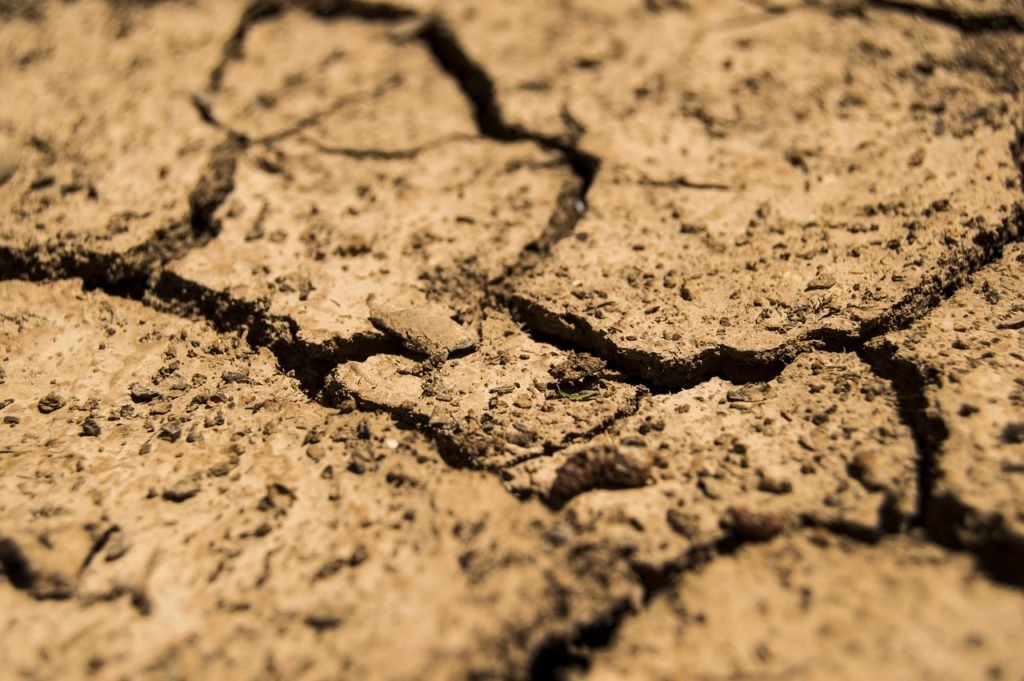
Factors affecting soil temperature
The temperature a soil attains depends on (a) heat supply—how much heat reaches the soil surface and (b) dissipation of heat—what happens to that heat within the soil mass. So there are various factors that influence the soil temperature which are as follows:
1. Composition of the soil
Since the soil is a lot granular medium consisting of solid, liquid and gaseous phases, the thermal regimes of the soil will depend upon its volumetric composition, the size and arrangement of the solid particles and also interface relationship between the solid and liquid phases. Among the solid materials, the soil is composed of partly mineral matter and partly organic matter. The specific heat of mineral matter like iron (sp. heat 0.11) is less than that of organic matter, humus (sp. heat 0.44). So soils containing much more mineral matter get heated very easily than those soils containing higher amount of organic matter.
2. Soil structure
Soil structure also influence soil temperature by controlling pore spaces resulting from the different types of arrangement of soil particles like open and close systems of packing etc. Soils having spheroidal type of structure warm up more quickly because there is no prevailing conditions of waterlogging.
3. Soil texture
A light textured sandy soils, in general, absorb heat very quickly than heavy textured clayed soils. A heavy soils carry a greater quantity of water and due to this reason it warms up very slowly.
4. Soil moisture
Soil moisture plays a vital role in controlling its thermal regime. The 7ecifie heat of water is high than the soil. Moist soils have a higher specific heat than dry soils. Consequently, a moist soil has a lower temperature than dry soil. Moist soil gets heated very slowly and it is cooler than the dry soils.
5. Soil colour
In a dark soil where colour is caused by large amounts of humus, the larger amounts of water held by the humus may offset the increased heat absorption due to e dark colour.
6. Vegetation
Soils covered with different types of vegetation absorb less heat as compared to soils without vegetation cover. Vegetation acts as an interceptor of heat on the soil surface and thereby reduces the thermal regime of the soil.
7. Irrigation and drainage
Irrigation raises the humidity of the air, lowers the air -.2rnperature over the soil and reduces the daily soil temperature variations. Drainage decreases the heat capacity of wet soils, which raises the soil temperature. This plays an important role in warming up the soil in the spring.
8. Topography
The slope of the land especially ground slope also influence the soil temperature. The temperature of the ridged fields is higher than those that are level.
9. Compactness of the soil
Compactness of the soil surface increases the density and the thermal conductivity. Compacted soils have better heat conductivity than loosened soil. Tillage, on the other hand, creates a surface mulch which reduces heat flux from the surface to the sub-surface layers.
10. Climate
Climate has a profound influence on the thermal regime of the soil. Soils in temperate climate are cooler than those soils in tropical climate.
11. Season
Soil temperature differs with the seasonal variations of the year. The summer months (June to July in the northern hemisphere) like midday, represent the peak of the global radiation and the maximum temperatures. The winter months have an effect similar to daily night temperatures which is much lower. The temperature of the surface soil is always higher than the air temperature.
So, factors that influence the soil temperature mentioned above have great effect on crop production. We should keep in mind these factors during crop production.
You can read more articles about Soil Science
Useful Agricultural Websites